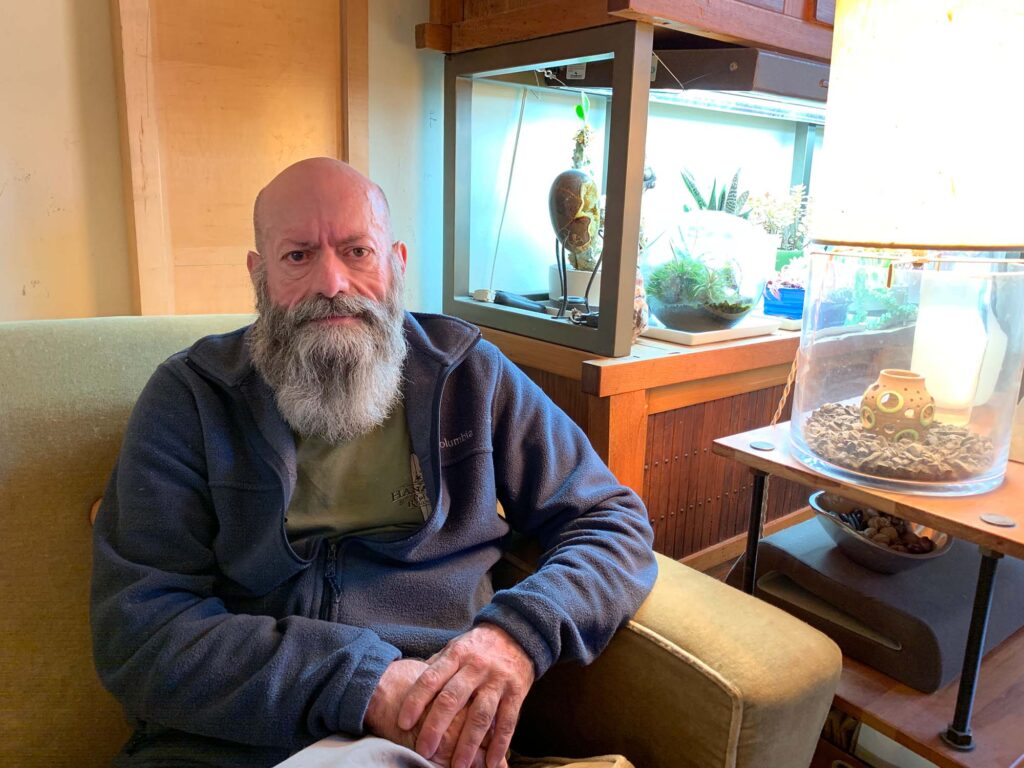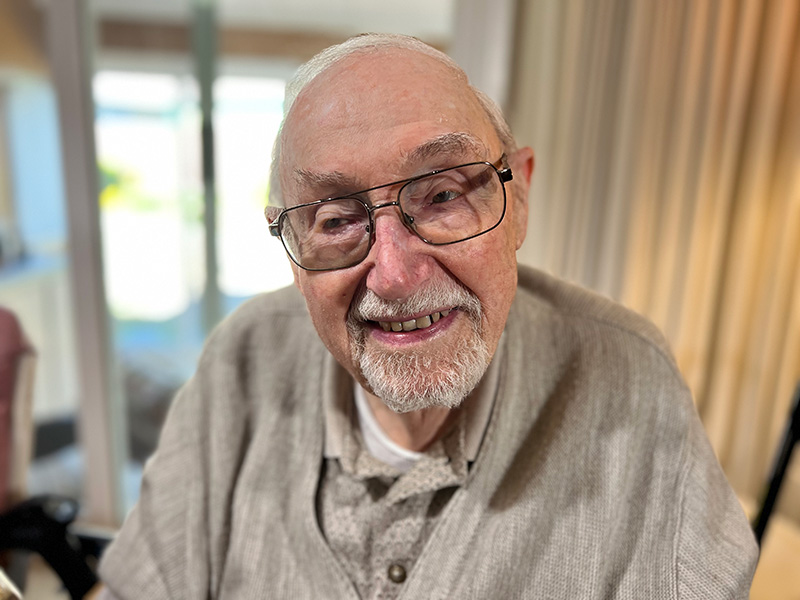At the height of the AIDS epidemic in the 80s, the nation, really the world, was grappling with how to treat this seemingly invincible disease that was decimating communities.

According to the Centers for Disease Control and Prevention, the first cases of AIDS were reported in the U.S. in 1981 and since then, more than 700,000 people with AIDS have died. Today, there are more than 1.1 million people living with HIV including Johnathan, a Meals on Wheels recipient.
In 1980, Johnathan, who turns 65 this year, moved to San Francisco to escape from El Paso, Texas – the epitome of anti-gay culture and support. While in Texas, he studied nursing at the University of Texas at El Paso and landed a dream job as an RN. Unfortunately, living as a gay man in West Texas was anything but a dream.
“I had been to San Francisco as a kid and always loved it and always wanted to move out here,“ Johnathan explained.
And that’s what he did. It didn’t take him long to land a job as a nurse at UCSF Medical Center in San Francisco. By then, his partner had moved to the city, and together, they found a home in the Castro. When they weren’t working, they lived and breathed the gay culture and community that was non-existent in Texas.
In 1987, Johnathan was diagnosed with HIV. It was devastating news for someone who had just moved to the “gay mecca” with the love of his life and had launched into a career. Jonathan says his partner did not take his HIV diagnosis news well and eventually left him. His parents, still living in conservative Texas, “flipped me off” as he described it, over his diagnosis, and abandoned him as well. Within a blink of an eye, Johnathan found himself alone with no supports, battling an unfamiliar and frightening disease, and navigating the myriad of medications his medical team was prescribing to keep him alive.
As the 80s became the early 90s, thousands of men and women continued to perish in the AIDS epidemic while doctors tried new treatments in search of a cure. Life in the gay mecca known as the Castro was no longer dreamy.
“It was horrible with all the people you knew walking around with, you know, just this horrible wasting and Kaposi sarcoma lesions all over them and wheelchairs and things and then, one by one, you would never see them again,” Johnathan explains, teary-eyed. “I think I’ve been to 50 funerals — since that happened. And now I don’t have any friends left – they’re all dead, but, I’m still clicking away.”
Johnathan moved back to Texas eight years ago to take care of a friend who was ill. He returned to San Francisco a few years ago and was injured in a scooter accident that resulted in him breaking both an arm and a leg. While in the hospital recovering from that accident, staff encouraged him to apply for Meals on Wheels. Johnathan is no stranger to the program. While he lived in El Paso he volunteered with a friend to deliver meals to his neighbors in the community.
“It [Meals on Wheels] saved my life I; I was having big financial problems and was barely able to pay my rent and it was almost impossible for me to go shopping. I would have had to have delivery but I didn’t have enough money to get delivery,” Johnathan, who has been on the program since 2018, explains.
“I mean it’s been just spectacular and I’m just really thankful that we have an organization in this country that takes care of its elders, or [those who are] becoming elders.”
In addition to the consistency of meal deliveries that Jonathan can count on, he’s also grown to know his main meal delivery driver, Brett, who, during every visit, asks him how he’s doing.
“He’s really nice; just so friendly and asks me how I’m doing and is very concerned about everything and I really appreciate that. I mean it really helped my mood. It’s really helped my depression, a lot.”
These days, Johnathan looks to reconfigure his Marina District apartment so it’s roomier. He is an avid horticulturist and grows hearty succulents under a sunlamp in his living room. Nearby, a bowl of origami paper cranes he’s been folding rests on a table. He hopes to make a hanging mobile made up of one thousand of them. An ancient Japanese legend promises that anyone who folds one thousand origami cranes will be granted a wish by the gods.
Johnathan wishes that one day he’ll be able to move back to the Castro and the community he’s loved for so many years.



